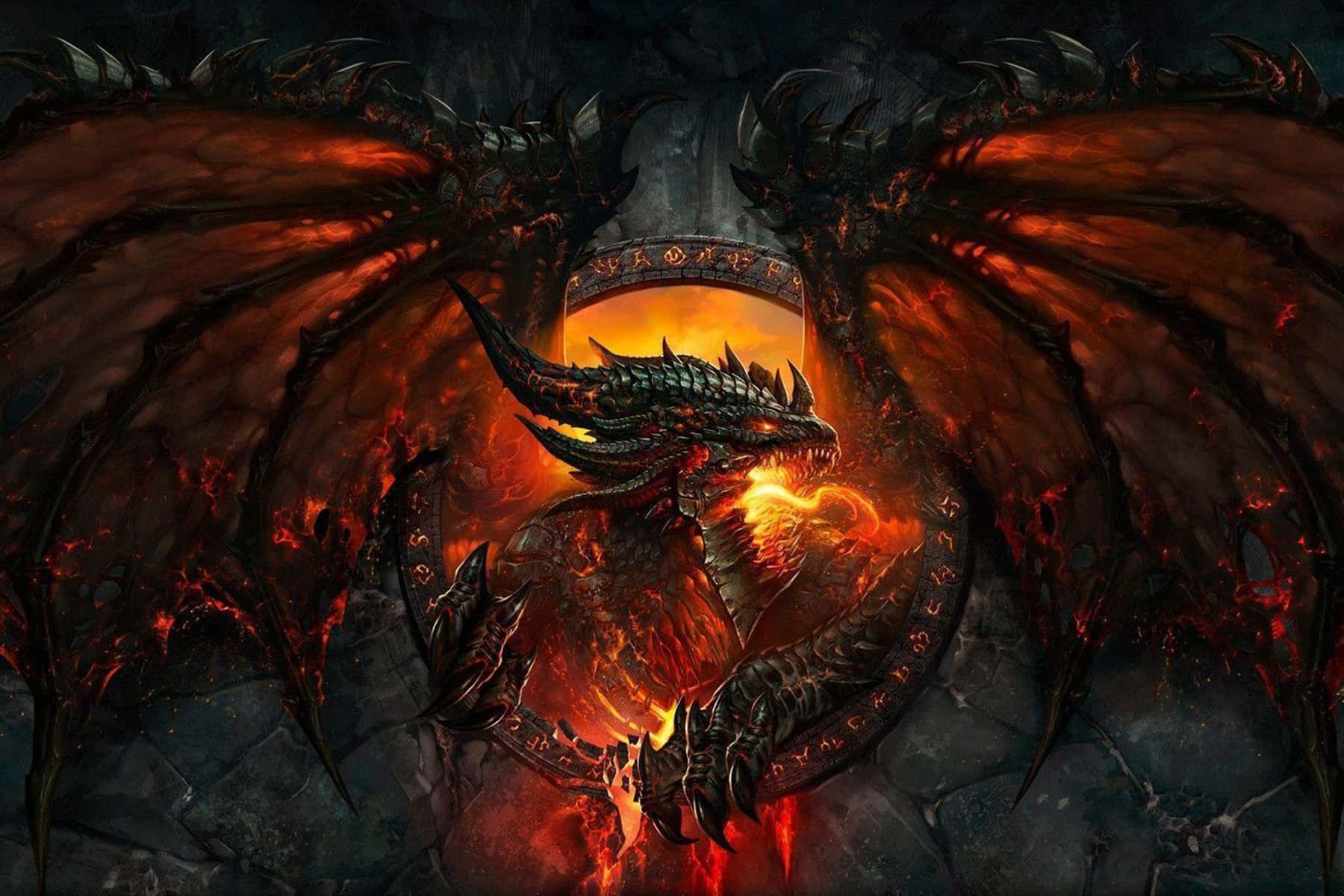A special interview for The Guardian by Alison Flood

Incest, dragons, gore… with fans awaiting the next book in his hit series, the novelist talks about fame, expectations – and the new 300-year history of the Targaryens in Westeros.
Strict instructions are issued before interviewing George RR Martin: do not ask about The Winds of Winter, the sixth book in his A Song of Ice and Fire series, the one fans keep haranguing him about and Martin has been writing since 2011. Focus on Fire & Blood: 300 Years Before A Game of Thrones (A Targaryen History), his imagined history of the Targaryen dynasty, and all will be well. So I prepare for the interview with a certain amount of trepidation. Martin is probably one of the most famous novelists in the world. There are not many writers who find their every pronouncement picked over by the press, who have sold 90m copies of their books, who are instantly recognized in public.
We’ve spoken before, back when A Game of Thrones was about to hit television screens; I’m one of those readers who feels slightly smug about loving the books before Ned Stark became Sean Bean, before Emilia Clarke became Daenerys Targaryen. But I know he has a reputation for irascibility, and I also really, really want to ask him about The Winds of Winter. As it turns out, Martin brings up the book himself, and is warm and expansive on topics from fame and fortune to his progress on the long-awaited novel.
We start, though, with Fire & Blood, only the first half of a history that will span 300 years and acres of Aegons and Jaehaeryses. Martin admits he never planned to write it. Fire & Blood stems from a coffee-table book, The World of Ice and Fire, which was being pulled together by two “uber fans,” Elio M Garcia Jr and Linda Antonssen, in 2014. Martin was just going to “polish and expand the history a little, maybe fill in any holes” about various kings and battles. But he was having so much fun that those little additions ended up running to 350,000 words. “We had totally destroyed the entire concept of this book,” says Martin. “So that’s what this book is, or the first half of it: a history of the Targaryen kings.”
Written in the voice of a maester of the citadel, Archmaester Gyldayn, a “crotchety old guy with strong opinions” who is telling his story hundreds of years after the events he’s chronicling, the structure allows Martin to play about with the unreliability of his narrators, as Gyldayn sorts through his primary sources. These include Mushroom, a brilliantly bawdy dwarf whose take on history errs towards the filthy.
Martin has always loved popular history; Game of Thrones was loosely inspired by accounts of the wars of the Roses. “My model for this was the four-volume history of the Plantagenets that Thomas B Costain wrote in the 50s. It’s old‑fashioned history: he’s not interested in analyzing socioeconomic trends or cultural shifts so much as the wars and the assignations and the murders and the plots and the betrayals, all the juicy stuff. Costain did a wonderful job on the Plantagenets so I tried to do that for the Targaryens.”
From sibling marriages to dragon riders, assassinations and plotting, there is an awful lot going on and those looking for the guts and glory for which Martin is renowned will not be disappointed – take this pronouncement, from one prophet: “When the dragons come, your flesh will burn and blister and turn to ash. Your wives will dance in gowns of fire, shrieking as they burn, lewd and naked underneath the flames. And you shall see your little children weeping, weeping till their eyes melt and slide like jelly down their faces … ” Or the stories that lie behind these few lines: “She saw her son rise up against his uncle and die, together with his dragon. A short while later, her second son followed him to the funeral pyre, tortured to death by Tyanna of the Tower.”
“There are novels buried in it,” Martin admits. “If I were 30 years younger I could easily write a series about the Dance of the Dragons” – the Targaryen civil war – “or I could write the story of Aegon’s conquest. Every one of the 13 children of Jaehaerys and Alysanne has a story that could be told about him or her, their rise, their fall, their triumphs, their deaths … It was a lot of fun to create, a lot of fun to live in that world again.”
The way Martin speaks about writing Fire & Blood is in direct contrast to how he talks about the long-awaited novel. “I’ve been struggling with it for a few years,” he admits. “The Winds of Winter is not so much a novel as a dozen novels, each with a different protagonist, each having a different cast of supporting players and antagonists and allies and lovers around them, and all of these weaving together in an extremely complex fashion. So it’s very, very challenging. Fire & Blood by contrast was very simple. Not that it’s easy, it still took me years to put together, but it is easier.”
Martin has charts to help him keep track of his vast cast, and “lots of pieces of paper with scribbling all over them”, as well as “Elio and Linda off in Sweden if I forget what color anyone’s eyes are.” And these days, there’s also a Wikia he can consult. When he’s really on a roll with his writing, “there are days when I sit down in the morning with my cup of coffee, I fall through the page and I wake up and it’s dark outside and my coffee is still next to me, it’s ice cold and I’ve just spent the day in Westeros.”
Martin, born in 1948, began writing as a child, in Bayonne, New Jersey, selling monster stories to other children for pennies. In high school, he wrote superhero stories for fanzines; he became passionate about science fiction and fantasy after discovering comic books as a young reader, and realizing that books didn’t have to be about “Dick and Jane and Sally, this suburban family with a dog called Spot.”
“I lived in a federal housing project, there were docks and there were warehouses … Dick and Jane lived on what might have been an alien planet,” he says. “Then I discovered Batman and Superman. Now those were stories, they were having adventures. All sorts of amazing things could happen.”
In middle school he encountered Tolkien, “and yeah, he blew my mind”. Martin studied journalism at university – he went to Northwestern in Illinois – continuing to write and sell short stories through his time as a conscientious objector to the Vietnam war (he did alternative service with Volunteers in Service to America), a chess tournament director and a teacher. In 1979, he turned to writing full time, publishing novels including his debut, space opera Dying of the Light (1977), and historical vampire tale Fevre Dream (1982). He also worked on Hollywood TV shows including The Twilight Zone and the CBS series Beauty and the Beast as a story editor and producer.
But he’d always had “at the back of his mind” the thought that he wanted to give epic fantasy a try. “Tolkien had an enormous influence on me, but after Tolkien there was a dark period in the history of epic fantasy where there were a lot of Tolkien imitations coming out that were terrible,” he says. “I didn’t necessarily want to be associated with those books, which just seemed to me to be imitating the worst things of Tolkien and not capturing any of the great things.”
The first chapter of A Game of Thrones came to him “out of nowhere” in 1991. “When I began, I didn’t know what the hell I had. I thought it might be a short story; it was just this chapter, where they find these direwolf pups. Then I started exploring these families and the world started coming alive,” Martin says. “It was all there in my head, I couldn’t not write it. So it wasn’t an entirely rational decision, but writers aren’t entirely rational creatures.”
A Game of Thrones opens with Bran Stark climbing a tower at Winterfell and seeing Jaime and Cersei Lannister having incestuous sex, before being pushed to his apparent death by Jaime. By the end of the novel, Bran’s father Ned Stark has been beheaded by the mad boy-king Joffrey Lannister, while Viserys Targaryen, whose father lost the Iron Throne, has had molten gold poured on his head as his sister Daenerys looks on. Five books into the series, the battle for the Iron Throne of Westeros has killed off countless characters, bloodily and unexpectedly – one major name is shot with a crossbolt on the privy; much of an army is wiped out during the notorious Red Wedding scene in A Storm of Swords.
Tolkien might have set him on his way, but Martin’s brand of fantasy is very different from The Lord of the Rings – grittier, darker, much less heroic. “I think every contemporary fantasy writer writes under the shadow of Tolkien, but there was no way I could capture his voice, which is singular and unique. He was a very different man than me, a man from a different time with very different attitudes, and even though we were both writing about a medieval-type society I had a very different take on it, on basic attitudes about the war and sexuality, so I was just telling my story,” Martin says.
His mantra has always been William Faulkner’s comment in his Nobel prize acceptance speech, that only the “human heart in conflict with itself … is worth writing about”. “I think that’s true of any fiction worth reading, that you’re really talking about people. And maybe it’s set in space or in a castle with dragons, maybe you set it in a suburban town where Dick and Jane live, or in some urban hell hole. Wherever you want to set your story, it’s still about people trying to make their decisions about what is right and what is wrong, how do I survive, questions of good and evil.”
His famous fans include Margaret Atwood and Neil Gaiman, who says that he has been reading Martin since he was 15. “He wrote a huge dark space opera and a vampire riverboat story and a murder mystery rock’n’roll fantasy novel. Each book and each story was different and each was deep. I was delighted that the public discovered his genius with Game of Thrones, but I wish they’d read the other books too,” says Gaiman, who describes himself as “famous in the world of George RR Martin for a blog post”, in which – way back in 2009 – he took Martin’s fans to task over their demands for the next Song of Ice and Fire novel, telling them: “George RR Martin is not your bitch.”
A Song of Ice and Fire was a bestselling series before HBO came along in 2013, but the show took fantasy to the mainstream. Today, Martin sits in a position he could scarcely have imagined when he published the first book. “Like every other young writer I dreamed of fame and fortune. Having achieved them I can tell you that fortune is great,” he says. Martin’s book sales have allowed him to buy a cinema in Santa Fe, near where he lives with wife Parris (they have been together since 1981 and married in 2011, Martin writing on his blog at the time: “What can I say? I’m slow. With writing and with … ah … other things”). They fund a scholarship for budding fantasy writers and support a wolf sanctuary in New Mexico. “I like the fortune part of it. Fame is definitely a double-edged sword … If I’m in an airport or a big city, any kind of public event, I have to be prepared to be recognized, everybody wants a selfie. The fans are usually very nice but you can’t control it, you can’t turn it off. We all have bad days when we’d just like to be left alone, you don’t get to have that option any more … It’s a mixed blessing, definitely.”
And there’s the pressure it brings to the writing. The sheer popularity of Game of Thrones has made cracking on with the series harder, he admits. And there’s also the problem of the storyline in the show overtaking that in the books.
“The show has achieved such popularity around the world, the books have been so popular and so well reviewed, that every time I sit down I’m very conscious I have to do something great, and trying to do something great is a considerable weight to bear,” he says. “On the other hand, once I really get rolling, I get into the world, and that happened recently with Fire & Blood. I was going to sleep thinking of Aegon and Jaehaerys and waking up thinking of them and I couldn’t wait to get the typewriter. The rest of the world vanishes, and I don’t care what I’m having for dinner or what movies are on or what my email says, who’s mad at me this week because The Winds of Winter isn’t out, all that is gone and I’m just living in the world I’m writing about. But it’s sometimes hard to get to that almost trance state.”
It can also be hard because Martin has so much going on. As well as writing the books, he is working with the writers of the five different prequels to Game of Thrones that HBO is developing, , including Jane Goldman, whose The Long Night takes place 5,000 years in the past. He’s also executive producing an adaptation of Nnedi Okorafor’s Who Fears Death, has the superhero series Wild Cards in development (“not just one Wild Cards show but hopefully two or three”) and is developing “a couple of other shows for HBO that I can’t talk about yet”.
“It’s all fun, but there are days when I feel a little dizzy. It’s a good problem to have.” Wherever he goes, it’s not likely his writing will stray out of the speculative. What is it about fantasy that draws readers in so tightly?
“People read fantasy to see the colors again,” he says. “We live our lives and I think there’s something in us that yearns for something more, more intense experiences. There are men and women out there who live their lives seeking those intense experiences, who go to the bottom of the sea and climb the highest mountains or get shot into space. Only a few people are privileged to live those experiences but I think all of us want to, somewhere in our heart of hearts we don’t want to live the lives of quiet desperation Thoreau spoke about, and fantasy allows us to do those things. Fantasy takes us to amazing places and shows us wonders, and that fulfills a need in the human heart.”
And the dragons? “Oh sure, dragons are cool too,” he chuckles. “But maybe not on our doorstep”
Alison Flood
Peter Yang
Originally published on The Guardian as George RR Martin: ‘When I began A Game of Thrones I thought it might be a short story’
Help deliver the independent journalism that the world needs, make a contribution of support to The Guardian.















